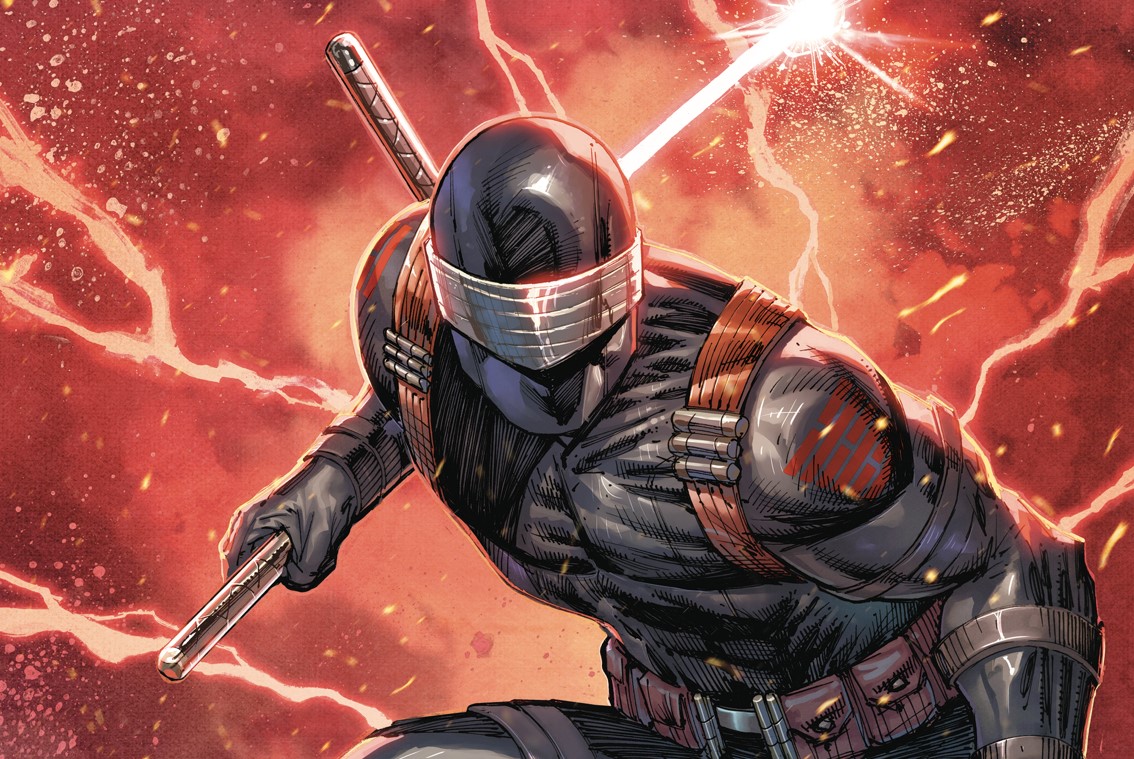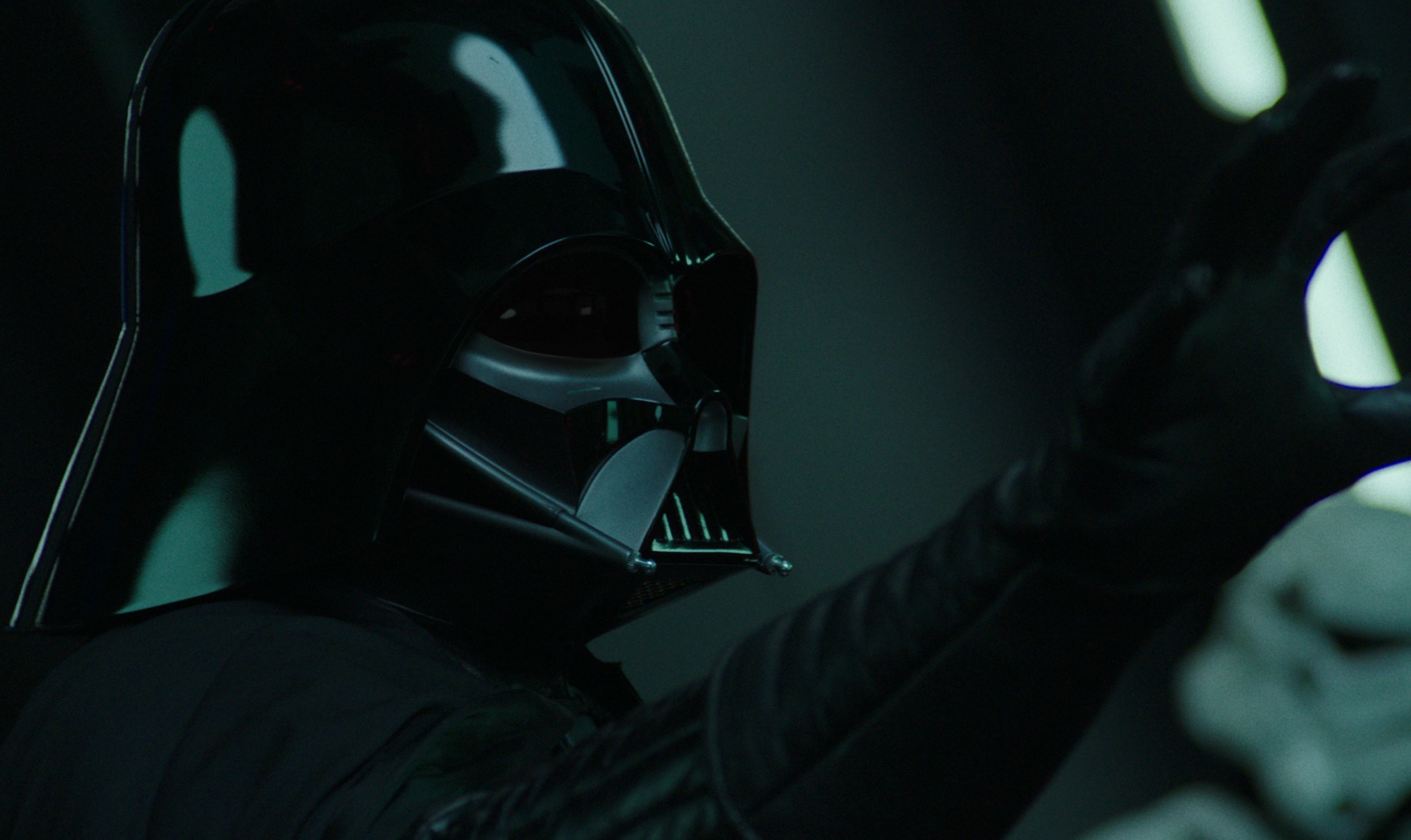![]()
The greatest battles in our memories didn’t occur in the history books. But, it’s on TV, movies and video games.
In a Ken Burns’ documentary style storytelling, Machinima took a few of the greatest battles from geek culture into an education for all of us.
For “Real Fake History,†it’s a series of parody shorts about the greatest fictional battles from Endor to Gotham City.
Voice actor Phil Morris narrates each episode with actors Tony Janning, Sandeep Parikh, Jeff Lewis and Brooke Seguin making appearances in these shorts.
The episodes will include Star Wars: The Battle of Endor, Mike Tyson’s Punch Out, The Avengers: Battle of New York City, Pacific Rim, The Battle of Hong Kong, The Dark Knight Rises: Taking Back Gotham City, Kill Bill: Massacre At the House of Blue Leaves, Starship Troopers, Disaster on Klendathu, Starcraft 2: Eugene vs Jay, Game of Thrones: The Battle of Castle Black and The Walking Dead: Woodbury’s Assault on the Prison.
Latino-Review had an exclusive phone interview late last month with voice actor extraordinaire Phil Morris. We discussed Ken Burns, documentaries, geekdom, comic books and more!
Machinima’s “Real Fake History†will appear on its channel starting this week. A new episode will be released each week. Watch the first episode at the end of this interview.
Read the interview transcript below.
Latino-Review: So we’re talking about this Machinima’s new series called, “Real Fake History.†[Laughter] Just by the title alone—I have to giggle. Why are you attracted to this project?
Phil Morris: [Laughter] The concept of this thing is just hilarious. I’m always interested in clever material, especially when it relates to genre work. I’m very familiar with that side of the street. It was brought to me by a very good friend of mine who I just recently worked with for Roddenberry Productions by the name of Tony Janning. Tony was an actor in the short film we did for the Roddenberry company. He’s just a great guy. Great actor. And we had a couple of meetings about other stuff.
One day, he called me and said he was writing this thing for these guys which needed a narrator. He said, “If I could get you—that’ll be awesome!†So I asked, “What is it?†He told me about it. The concept was something that I just thought about it as great. I replied to him, “Let me take a look at the material and wrap my mind around it. Then I’ll go from there!â€
As it is related to video games, movies and crazy things with the undercurrent Ken Burns’ documentary style—I was in. I was in! I could do this. This could be fun. That’s what drew me to it.
Latino-Review: [Laughter] I’ve only heard a few clips so far and haven’t seen anything else. Did you have to go back to the Ken Burns’ documentaries to see the process of narration?
Phil Morris: I am a HUGE Ken Burns fan. For real! I’ve seen all of them from America to jazz to baseball. There must be a million of them. I worked with a lot of people that do voices. I do a lot of voices and lots of narration. I didn’t have to go back and check it. I knew it. Because I love it so much—I knew I can lend so much and lived it! It’s with my sense of humor and my observations, which is different than the straight ahead narrator we hear in documentaries and even Kevin Burns’ films.
I had a chance not only to honor that performance and framework, but to also to fix it with opinions at inappropriate times. It’s making a left turn suddenly when audiences are there right with you. “What the hell he just say?†[Laughter] That’s the advantage of doing this, because of the writing. It wasjust so clever.
Latino-Review: Speaking of the narration, Ken Burns’ style of narration is definitely a straight-shooter type of style. How do you not laugh in accordance to your own script? Obviously, you’ve been doing this for years. This is something different.
Phil Morris: There are a lot of takes that I blew, man. It’s the earnestness that you do it. The integrity of the narrator is everything. It sets the table for the visual that you are following. As we’re going through this, I have four or five guys pointing at me to do stuff. I have what I’ve prepared. They have on what they want. We narrate it all and it comes out as this “Real Fake History†thing.
There was a point when I realized that this was something different than what I know a documentary to be. The way that it was different was that not only it was not real, but it’s a supposition on a reality that truly does exist. How do we respond if we had these aliens truly invading our planet? How does this narrator relate this to the audience in a real way? And then comment on how ridiculous this is. That was the dance. That was the great challenge.
Latino-Review: Did you try to adlib anything of yourself into this?
Phil Morris: Absolutely! Why have me in the booth if we’re not going to do the whole Phil thing? I was tripping out on some of the stuff. We kept quite a bit of it. Some of it was just so ludicrous, Gig. It was only for me to only get back to zero. You can’t quite keep your tongue in your cheek that hard and that long without losing it. At a certain point, I would lose it. We would use it or get it back in my mind as I read the line. That was the advantage of this kind of material. I wasn’t bound to any actual history. It’s fake! [Laughter]
Latino-Review: Well, tell me this—what was your favorite battle while you were working on this project?
Phil Morris: It’s either the Endor battle with the Ewoks or…..there are quite a few like the Woodbury battle in The Walking Dead, which is hilarious. There’s even the Pacific Rim, which is crazy. Punch Out. That Mike Tyson’s Punch Out is definitely funny.
It’s probably The Walking Dead stuff. I don’t remember it clearly like it was yesterday since I worked on this project a little while ago. I did it all in one day. I’ve been at quite a few places since then and don’t quite remember it all.
Latino-Review: Was it a challenge for you to do this all in one day?
Phil Morris: No, I rather prefer it. You get that rhythm going. So if you come back the next day, then your voice changes. In fact, as I got going on a quarter ways through the session—you’re really rolling. You’ve got the tempo and the jokes are flowing. When you go back to do the stuff you started the day with, you kind of warmed up then.
So I wouldn’t want to come back the next day and try to restart that machine if I didn’t have to. And we didn’t have to. The writing was good enough. Fortunately, I’m good enough that I don’t have to go back and do many retakes. We got out of there on a really timely fashion.
Latino-Review: When you were doing the project with all these different battles, did you have to revisit and research these real fake history battles?
Phil Morris: No, because it was their job. It was their job before they wrote the copy. The copy was so good that it informed me even though I’ve never seen these movies or video games. I’ve already did see a bunch of them. I’m a big The Walking Dead fan and of course, Star Wars fan. I didn’t need to have that, because the information was already there. I already knew the log line of each movie in order to invest into the information they were giving me. It made my job a little bit easier on that level.
I don’t want to go through too many things that create imitations. I’ll imitate on what I hear or see. I want it to be out of the whole cloth. The decisions and choices I’ve been making is based on how I gravitated and related towards the material—not necessarily a comprehensive research on Pacific Rim or any of the other projects. It just knows on what coming out of my mouth and the punchline reaching the crescendo. That was my job.
Latino-Review: Did they have photos or videos while you were in the booth for you?
Phil Morris: They had maybe a still on their phone on the set when they were shooting it. They didn’t show me any walking, talking footage of anything. They showed me the picture of the people they were interviewing with still photos of them. It was all imaginative.
They knew what they shot. They knew on what it looked like. They knew on how to marry my voice with it. They didn’t have the footage for me to see, because they’re in the process of editing it. I did a lot of it without any visual queue at all.
Latino-Review: That’s a certain talent from your years of experience.
Phil Morris: Maybe. But, I think maybe that I’m also a fan. I am a big fan of the genre related materials in comics, movies, TV and video games. I love it. My imagination is really fertile. All I have to do is imagine on what all this would be and hopefully there’s less in mouth and in my imagination. [Chuckles] If that makes any sense at all.
Latino-Review: No, that makes perfect sense to me. Have you’ve seen anything yet?
Phil Morris: Not yet. I’m excited, because since we’re doing this PR thing and I’ve known people must’ve seen something of it. Hopefully, I’ll see something soon.
Latino-Review: Did you have to work with other voice actors in the series? Or is just you in this solo narration?
Phil Morris: It’s just me in my solo narration in this very small booth in Hollywood, California. It’s just all by myself with the guys there. It’s usually on how it goes, especially with the narrator. There’s nobody I’m really interacting with. They may lay in a voice, but they’re not really with me.
Latino-Review: Tell me more about your love for the genre stuff. It sounds like you are a definite fan of all this geekiness and nerdiness stuff.
Phil Morris: I am. I’ve been collecting comic books since I was seven years old. I have over 20,000 single issues, which are all cataloged, categorized and bagged. My dad was one of the stars of Mission Impossible television series back in the 60s and 70s. He started the show when I was seven years old. I’ve been in the popular culture idiom my whole life. It hadn’t been a hobby or sideline. It’s been my life. It’s not a surprise that these things fascinate me—martial arts, comics, movies and television shows. It’s all primary colors with big, broad strokes. It’s my reality. And I like it.
It’s best to live when you’re stretching it to the maximum. Your imagination will help you do that. I’ve been a martial artist and studied with a great master over thirty years. These things inform me as an actor and performer.
The reference of material I’ve compiled and continue to compile—continues to inform me as an artist and as a human being. I think it makes you more of an interesting person with varied interests and passions that we could all understand. It’s a great journey I’ve been on for a long time.
Latino-Review: Well, if you have 20,000 comics all cataloged—I don’t even know how you stored all those comic books. [Laughter] That’s a definite passion.
Phil Morris: I’ve built a wall unit in my house. My wife wouldn’t let me keep them in any other way.
Latino-Review: [Laughter] Of course, you have a long career yourself in both live action and voice acting. Which do you prefer?
PhilMorris: It’s really not that simple, because there’s some voice work that I can’t touch it with live action. I couldn’t do those things. There are certain things that could be walking, talking, breathing and relating that you couldn’t do with just your voice. If I have to absolutely have to choose—then it would be on camera as opposed to voice over. It’s the whole of me rather than feeling the use of the part of me.
The nice thing about voice over acting is that I could sound like more people than what I could look like. I can embodied more people with my voice than physically and visually. But, the emersion of the full figure acting is far more challenging. To me, it’s far more rewarding and fulfilling than just using my voice.
Latino-Review: What’s the real secret in keeping such a long career in voice acting? You keep on going back to it and people keep on giving you these projects.
Phil Morris: It’s hard to say for me objectively. Perhaps, I’m good at on what I do. I’ve bring a certain quality of my own. I’m an African-American male, but I don’t necessarily sound like that. I can if I want to. I have my normal, my tone and I’m a west coast guy. I’ve studied a lot of craft and I have a lot of technique to bring.
And I’m diverse. I can do different things—comedy and drama. I’ve played heroes. I’ve played villains. I’ve played creatures. I’ve played kids. I do it all. I don’t choose to like one more than the other. I like my characters. Who am I this time? It’s to measure up to my character’s reality the best that I can.
As I do that, I find that I have a long career. I worked with a lot of people. I bring the heat. They like working with me. They call me back whether it’s on camera or for voiceovers. I go where my spirit tells me on where to go. Like I said, it’s been a very unique and fun journey.
Latino-Review: That sounds great, especially since you have this narration under your belt.
Phil Morris: Yeah. “Real Fake History†is going to be really cool. I think a lot of the fans are going to enjoy it. I’m excited to see the response.
Latino-Review: Are there any battles that you would like to see that they didn’t cover this first season?
Phil Morris: I need some “Matrix.†I need some Neo versus Morpheus. That’s a better question for the creators. They lived with this concept much longer than I have. I mean I would love to see so-and-so versus so-and-so. It’s like seeing Power Girl versus Superman would be awesome! As it comes out of a real movie, real book or real video game—that takes a little bit more thought. I would have to take more thought.
You’re a comic book guy, right?
Latino-Review: Yeah, yeah. I’m all pumped up to go to Comic-Con myself right now.
Phil Morris: Good! I’m going to be there. I’m going to do this animation voice over panel.
Do you remember the cover with Muhammad Ali and Superman from Neal Adams?
Latino-Review: Yeah.
Phil Morris: Bring that. Let’s bring some old school. Let’s bring some old time gladiatorial stuff. [Laughter] Shang-Chi versus Iron Fist? Or how about Plastic Man versus Reed Richards? [Laughter] I would like to see the Marvel Universe versus the DC Universe. Just like seeing Batman versus Captain America who has the very powers of the super soldier against the world’s greatest detective. My own imagination could go forever on that one.
Latino-Review: You know what? They’ll be reading your interviews and you’ll have your two cents into these things. That’s where it counts.
Phil Morris: [Laughter] Only if the narrator ever means anything in the world, Gig.
Latino-Review: Let me wrap this up. Can you talk about any of your upcoming projects besides this?
Phil Morris: I have “LEGO: Justice League†coming up. Along with that, there’s a couple of LEGO: Scooby Doo movies. It’s kind of cool. I do a show called, “Love That Girl†on TV One, which runs every week as a half-hour comedy. And I do a podcast called, “Living the Dream with Phil Morris†on iTunes. It’s about the process we engage with on living our dreams.
Latino-Review: Well, I’m going to have to check out your podcast and your panel at San Diego Comic-Con.
Phil Morris: It’s been a pleasure talking with you. I’ll look forward in seeing you again.
Latino-Review: Thank you very much, Phil. And good luck.
Machinima’s “Real Fake History†is currently playing on its YouTube channel. Check out the first episode below.
Source: Latino-Review





